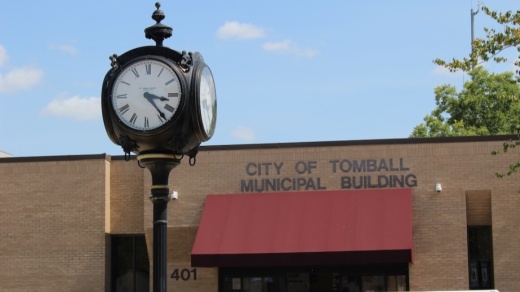City Manager David Esquivel told Tomball City Council members at a March 7 workshop meeting that needed public works projects are projected to total $122 million over the next three years.
Esquivel said public works needs to hire a crew of four people for the streets department, a crew of four people for the parks department, one person for the facilities department and one crew each—totaling 33 people—for the water, sewer and gas departments.
He said the public works department needs to add more fleet vehicles and new equipment along with developing new master plans for different departments, such as drainage and parks.
While Esquivel said not every project is needed, the city’s needs have grown along with the ongoing development.
“Those [projects] are trying to address some of the things we have inside the city. ... Because of growth, [that has been] triggered a lot quicker, and then when we factor in the cost of what we’re seeing it has absolutely grown astronomically,” Esquivel said.
He said these needed public works projects are because of recent developments in the city of Tomball, the city growth rate, infrastructure needs, rising costs of materials and employees needing to keep their certifications active. To keep up with all of the growth, the public works department needs to put in place infrastructure that can handle all the new homes, businesses and people.
Council Member Derek Townsend asked Esquivel what public works recommends and how the projects will be paid for since the cost is so high. Townsend said he would not support raising the city’s tax rate to pay for these public works projects.
Esquivel said paying for the needed projects could be done by a combination of raising impact fees for developers and ensuring developers are paying what they should; prioritizing projects; and coming up with creative and different ways to bid the projects.
Council Member Lori Klein Quinn asked whether the city could start rejecting developers looking to build within the city and put a pause on developments for the next year or two.
Esquivel said when the city created the 2019 impact fee schedule—the fees developers pay for new hookups to city infrastructure—the city chose to set its rates in the middle range, but because of inflation, the city is now near the bottom of what cities typically charge for impact fees.
“That’ll certainly slow down development if you double impact fees,” Townsend said during the workshop.





